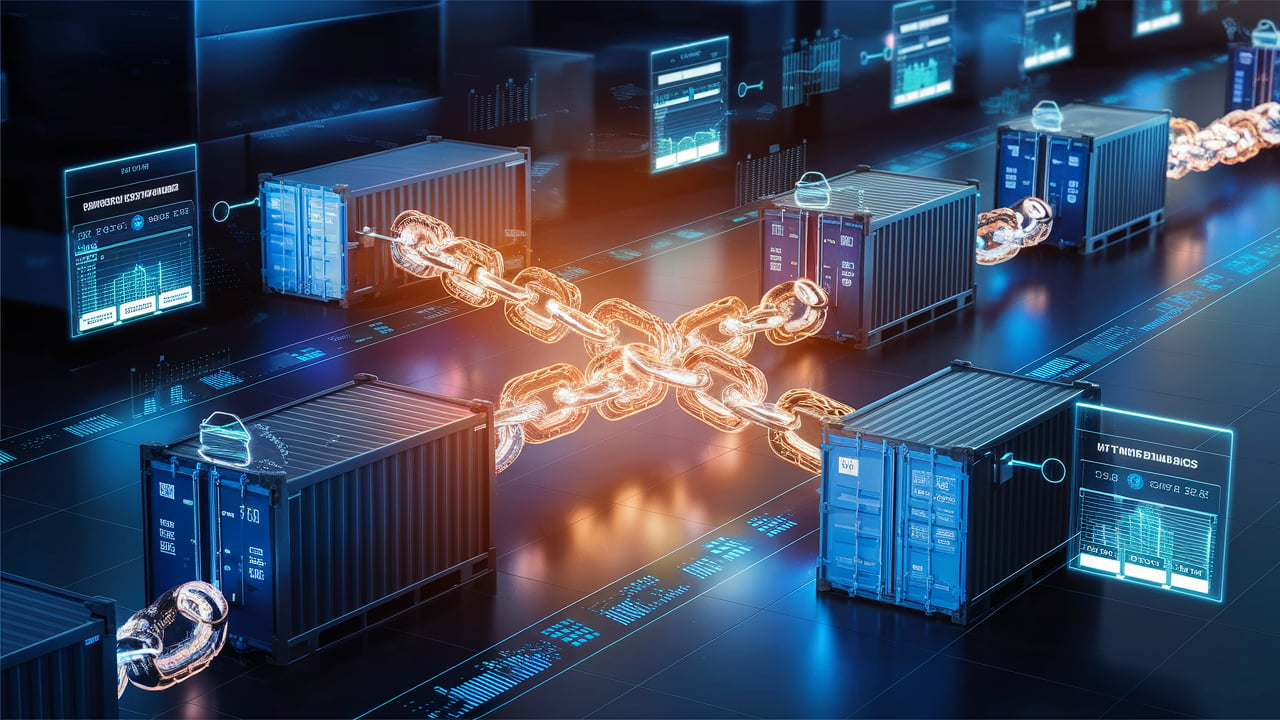Blockchain in Supply Chain: Transparency, Efficiency, and Security Unleashed
 Siddharth Pujara
Siddharth Pujara
Introduction
Blockchain technology, which was formerly only associated with cryptocurrencies like Bitcoin, is now a disruptive force in many different businesses. Blockchain has had one of the biggest effects on supply chain management, as it has revolutionized efficiency, transparency, and traceability. Businesses are searching for methods to enhance their supply chains as global marketplaces get more complex, and blockchain offers a game-changing alternative.

**The Problem with Traditional Supply Chains
**Due to their heavy reliance on centralized databases and middlemen, traditional supply chains are susceptible to fraud, inefficiency, and a lack of transparency. Traditional supply chains frequently include segregated information, which causes communication between stakeholders to lag. The supply chain sector has long been beset by problems like fake goods, improper inventory management, and a lack of real-time visibility. Blockchain can help with this by providing a transparent and decentralized solution that tackles these issues.
How Blockchain is Transforming Supply Chain Management

Enhanced Transparency
All supply chain parties may examine and validate data in real time thanks to blockchain’s decentralized ledger. Businesses can monitor every phase of a product’s lifecycle, from raw ingredients to the final customer, thanks to this visibility. For instance, a retail business can monitor a product’s whole lifecycle to make sure it satisfies quality requirements and follows moral guidelines.
Improved Traceability
Traceability is among the most innovative features of blockchain in supply chains. Every transaction can be tracked thanks to blockchain technology, which makes it simple to determine the origin and movement of items. The capacity to track products back to their origin can help avoid problems like foodborne infections and counterfeiting, which is especially useful in sectors like food and medicines.
Streamlined Processes & Efficiency
Blockchain reduces costs and delays by doing away with the need for middlemen. Payments, shipping, and customs clearances are all automated using smart contracts, which are self-executing agreements with the terms encoded directly into the code. Blockchain speeds up the movement of commodities across the supply chain by eliminating human procedures.
Enhanced Security
Supply chains must prioritize security, and blockchain’s cryptographic features make it the perfect tool for protecting data. It is practically hard to change or remove data without consensus since transactions are encrypted and stored on an immutable ledger. This adds another level of trust amongst all parties by guaranteeing that information stays secure and correct.

Case Study: Blockchain in Action
Blockchain solutions have already been included into the supply chains of major corporations like IBM, Walmart, and Maersk. For example, Walmart’s blockchain-based food traceability system ensures quicker recalls and reduces health risks by tracing contaminated products back to their source in a matter of seconds.

Blockchain’s Function in Sustainable Supply Chains
Additionally, blockchain technology is essential for advancing sustainability. Businesses can lower their carbon footprint and guarantee that their products fulfill environmental standards by increasing transparency and traceability. Growing customer demand for ethical and environmentally friendly products is in line with this move towards sustainable supply chains.

The Future of Blockchain in Supply Chain Management
Although blockchain adoption is still in its infancy, there is no denying that technology has the potential to completely transform the supply chain sector. Blockchain is positioned to become a commonplace aspect of supply chain management as more companies realize the advantages of efficiency, security, and transparency. Blockchain use is now required for businesses looking to remain competitive.
Future & AI can assist you navigate this transition and successfully incorporate blockchain technologies into your business operations if you’re looking to investigate the benefits of blockchain in your supply chains. To find out more about how our state-of-the-art services can improve your company’s operations, visit our website haveto.
Conclusion
Supply chain management is being redefined by the innovative technology known as blockchain, which is more than just a trendy term. Blockchain is assisting companies in overcoming conventional supply chain obstacles and setting themselves up for future expansion by offering previously unheard-of levels of transparency, traceability, and security. Blockchain integration in your supply chain has the potential to revolutionize your company and give you a competitive advantage in the marketplace if done properly.
Subscribe to my newsletter
Read articles from Siddharth Pujara directly inside your inbox. Subscribe to the newsletter, and don't miss out.
Written by
